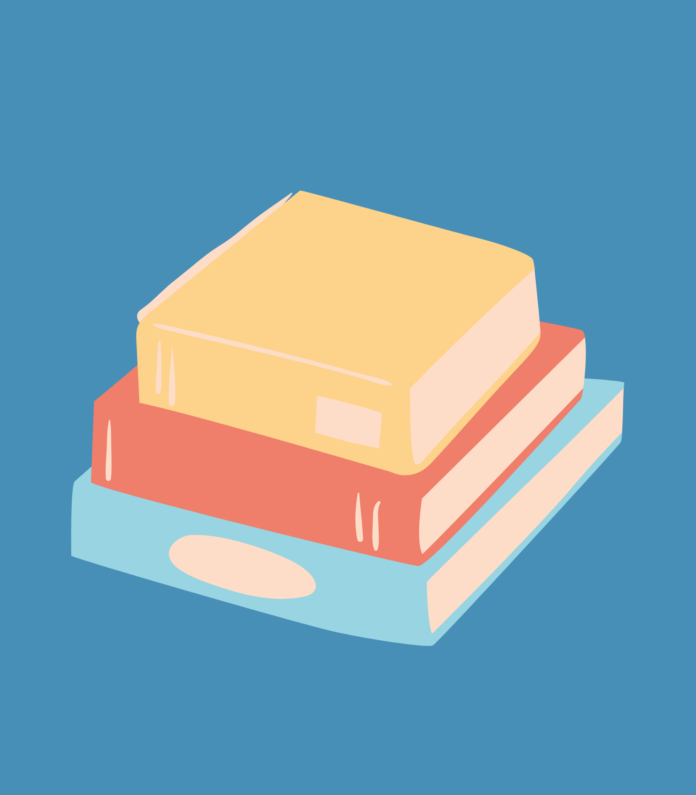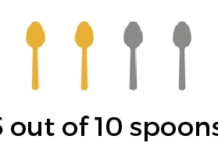Like many voracious young readers, my childhood and early teens were consumed by books. I read constantly, devouring anything and everything that came my way. In fact, I read so much my parents once suggested I take a reading break for a few days.
But as I neared the end of high school and my schedule became busier, I found myself reading less and less. By the time I began university, I found it challenging to finish more than a few books outside of school each term — not something I’m proud to admit as an English major and the Managing Editor of a newspaper.
Over the past year, I’ve slowly worked my way back to (semi) regular reading and set myself a lofty goal of finishing 100 books in 2022. To be completely transparent, I don’t plan on reaching that goal. I don’t know if I could. However, it is motivating me to read a whole lot more, and I won’t be too surprised if I’ve made it through 50 books (a clear record in my adult life) by the time December rolls around.
So, as someone who has successfully rekindled their love of reading, here’s my advice for how to get back to your bookworm status.
Firstly, and perhaps most importantly, you need to make time for reading. It might not be easy to get back into the habit of reading for hours before you fall asleep (and you might not be able to spare quite that much space in your schedule) but commit to reading regularly. Set a goal of 15 minutes or 30 pages a day, or one book a week or month — whatever you feel is reasonable. And don’t be afraid to adjust your goal when you get a better sense of what works for you.
Second of all, commit to it. Don’t force yourself to finish something you hate, but give your books a real chance. If they don’t hook you right away, try another chapter. If they lag a bit in the middle, trust that they’ll pick up towards the end.
Yes, getting through any amount of a book will help strengthen those reading muscles, but there’s something about the satisfaction of finishing — of following the narrative arc from beginning to end — that drives a desire for more. Plus, it’s quantifiable, shareable success — much easier to brag about the books you’ve read than those you’ve started to read.
Conversely, if you’re really struggling to work your way through a book, don’t be afraid to set it aside and start something new. Over time, you’ll find a balance between persevering and knowing when to let go.
You may also want to consider joining a book club. Not only can an external deadline help with motivation, but there is also a lot of joy in sharing stories, both good and bad, and in exploring new worlds and delving into new characters together. Even just picking a friend to read the same book as you some months can create a sense of connection and give you a chance to revisit the moments you love.
If book clubs or partnerships really aren’t for you, there’s a whole world of book social media — Bookstagram, Book Twitter, BookTube and BookTok — filled with fans of your current and future favourite reads.
Once you’ve figured out how and when to read, you need to figure out what to read.
For me, part of the challenge with reading for pleasure comes from the sheer amount of reading required by my classes. As an English student, I consume a ton of written material, including many novels, short stories and poems. I also read textbooks and academic articles in both my English classes and my business and political science classes. And I read (and write) a lot for work, too — between co-op, Imprint and freelancing as a tutor and essay editor, even my non-academic terms are filled to the brim with words.
As much as I love the content I read for school and work, it’s not always what I want to turn to decompress. It’s hard to relax to business strategy or political theory or updates on the latest global crisis. This term, I had to set a rule for myself not to skim the news right before bed. Instead, I pick up one of the novels I’m currently working my way through and dive back into a good story.
So, that’s my next tip: read things that you enjoy. It sounds obvious, but I think sometimes we get caught up in the mindset of what we should read, and don’t spend enough time actually reading what we like to read.
Of course, finding what you like to read can be a whole other challenge. If you haven’t read regularly in a long time, how do you know what your taste is? Where do you start?
A somewhat common (and, in my view, excellent) piece of advice is to try revisiting the content you loved back when you read more. Maybe re-read your favourite book or try another book by the same author. Maybe see whether any newer works in the same genre seem interesting. From there, you can start to identify which aspects of those books (if any) still appeal to you, and choose to either continue reading what you used to love or try exploring something new.
However, if it’s been quite some time since you last read (say, for example, you were in elementary school) or you’re pretty sure your taste has changed, you can try reading something adjacent to what you once enjoyed. For example, if you loved the Nancy Drew mysteries or the Mysterious Benedict Society series, maybe consider adult mystery books. If you devoured the Percy Jackson books, try books for older readers that incorporate mythology or explore magical realism more broadly. If you loved Alex Rider, Cherub and Artemis Fowl, try crime novels. If you loved YA fantasy, try adult fantasy. You get the gist.
On the flip side, you may want to broaden your taste. Or, you may realize you just don’t enjoy what you used to and need to discover something new. In that case, I suggest you try reading everything and narrowing it down from there. You can check the NYT Best Sellers lists (overall and genre-specific) or the Goodreads Choice Awards to see what other readers love.
Good reading!































